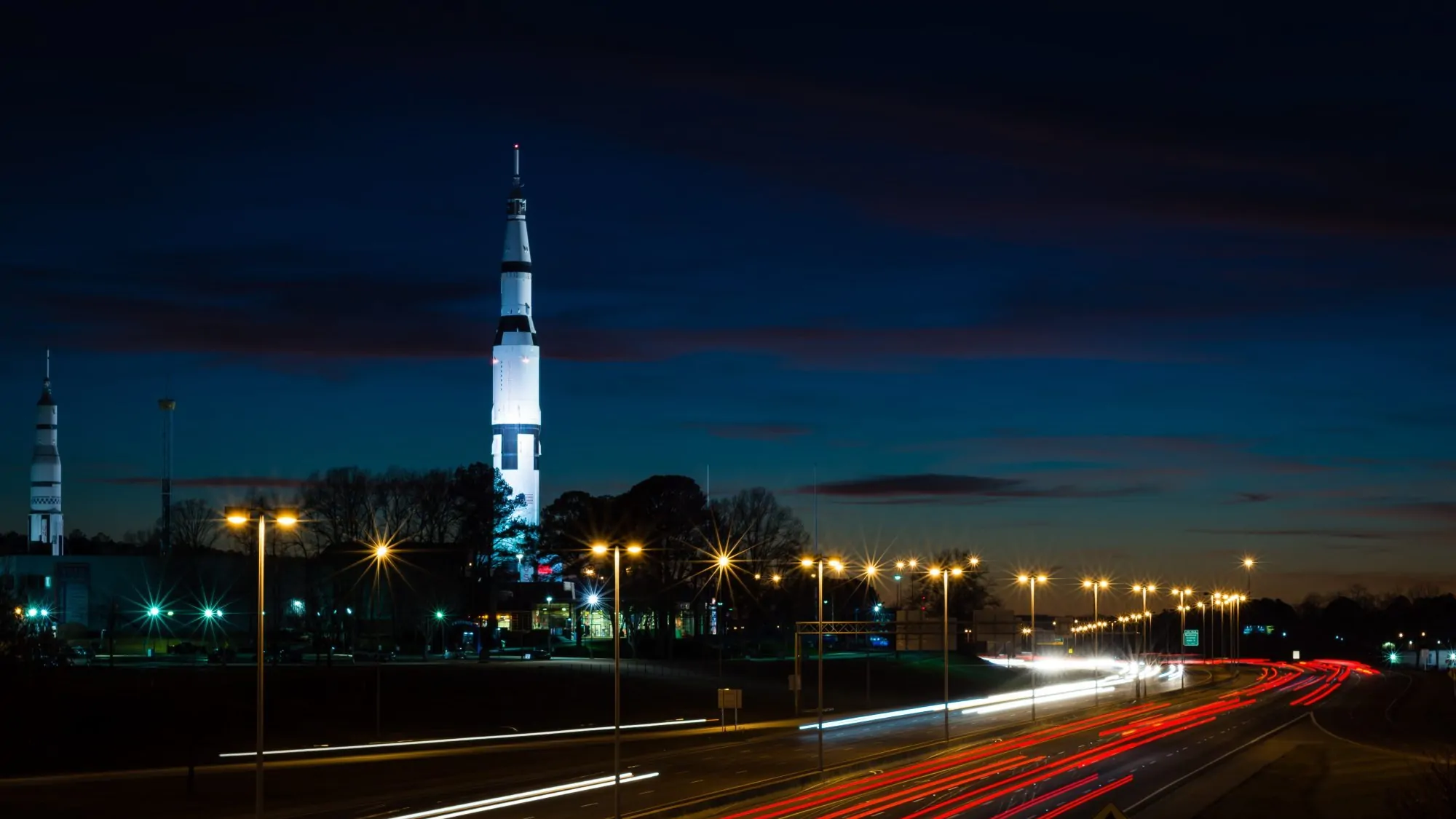As space technology advances and more private industry solidifies its footing, leaders in the space sector say Alabama is in a prime position when it comes to space exploration and technology.
“Alabama is uniquely and incredibly well-positioned right now to become even more of a leader in space,” said Deborah Barnhart, CEO and executive director of the U.S. Space and Rocket Center in Huntsville. “Because of the expertise of our governor, because of her position of NASA’s User Advisory Group, we have a unique opportunity to make our voice stronger in the whole space world.”
The Alabama Space Authority, a group created last year by the Legislature to encourage the development of space technology and attract a federally licensed spaceport to Alabama, met last week for the second time to begin exploring the licensing process and other ways Alabama could expand its role in the space sector.
“We have a unique opportunity to make our voice stronger in the whole space world.”
Alabama is already home to the NASA’s Marshall Space Flight Center, the U.S. Space and Rocket Center, Redstone Arsenal and a plethora of private companies — from Teledyne Brown to Aerojet Rocketdyne and Blue Origin, just to name a few. Barnhart and others on the Space Authority say Alabama could forge out a solid position as the leader in the U.S. space industry.
“It’s very important that we keep that leadership voice strong,” Barnhart said. “A big role for the committee here is to keep our governor and the voices well-advised.”
Vice President Mike Pence appointed Alabama Gov. Kay Ivey to the National Space Council’s Users Advisory Group in February after her nomination by U.S. Sen. Richard Shelby, R-Alabama. The group advises and informs the National Space Council on a broad range of aerospace topics.
In addition to Ivey’s position on that national group, Alabama’s newly elected Sen. Doug Jones, D-Alabama, could have an important role in confirming NASA’s top leadership positions. NASA has been without a confirmed administrator for more than a year, an unprecedented drought in leadership. And the acting director recently announced he was retiring.
The nominee has been confirmed by a congressional committee several times but the nomination hasn’t been brought to the floor for a vote. Jones’ support could be important in getting the nominee confirmed, which could put Alabama on the new administrator’s map for future projects and licenses.
“At a time when Alabama could play a very critical, pivotal role, Sen. Jones alone could help move things in the right direction and resolve this issue not only for the state but for the nation,” said Michael Gold, vice president of Washington operations and business development for the private-sector space firm SSL, who spoke at the Space Authority meeting Friday.
“We don’t go to space as Republicans and Democrats; we got to space as people, as Americans and as humans. Sen. Jones could help us get back to that place.”
The NASA administrator confirmation has never been a high priority for the Senate, but this leadership drought is the longest in recent memory. President Barack Obama’s nominee was confirmed within months. Gold said have never been part of NASA before and Jones could help restore the bipartisan nature of space.
“We don’t go to space as Republicans and Democrats; we got to space as people, as Americans and as humans. Sen. Jones could help us get back to that place,” Gold said. “It would be a magnanimous gesture, and it would be critical for the state and the nation.”
The federal government, through the FAA, is expected to approve several licensed commercial spaceports across the United States in coming years. The minds behind the Space Authority, including State Sen. Gerald Dial, R-Lineville, hope the group can attract one of the spaceports to Alabama as commercial space travel becomes a reality in the near future.
“Somebody is going to get this spaceport in the Southeast, and we think we can be that place,” Dial said in an interview with APR. “This is going be for space travel, wherever it is located, what Atlanta is to the world today. They have millions of people flying through there today. It’s been a hub for Atlanta, and that’s why you have so many corporate headquarters there.”
While some have painted Dial’s proposals as wishful thinking, the 80-year-old state senator has said Alabama needs to think ahead. He believes the state shouldn’t wait for space travel and commercial space flight to become a bonafide reality before trying to throw its hat into the ring.
Panel working to attract spaceport to Alabama will hold first meeting Tuesday
Hawaii, New Mexico, Oklahoma already have licensed private spaceports, and Camden County, Georgia, is trying to develop a spaceport on the Atlantic coast near Savannah. California and Virginia regularly launch payloads at government facilities, while Texas is another hub for private firms like Blue Origin and SpaceX to test their rocket engines.
Barnhart said the spaceport is only one part of the equation, though. The other roles of the Space Authority are perhaps more important, she said.
“We’re already lightyears ahead of any other state that has a spaceport in many other areas such as servicing, payload integration, payload servicing,” Barnhart said. “We’re uniquely qualified, as the Space Station commercializes in the future and as there are more and more orbits and launches to space with commercial payloads in them, to take advantage of that part of the business.”
Alabama’s fast-growing space industry and its many research institutions — from UAB to Auburn and the University of Alabama — could attract more space firms to the state and a spaceport could add to that equate.
“Another advantage of this will be the immediacy of access to payload processing. For example, UAB, HudsonAlpha, Auburn research, they can launch their experiments and have them come straight back to a near proximity so they can be processed quickly,” Barnhart said. “That would stimulate innovation and invention in our state, which of course then attracts high-paying jobs and talent into the state.”
Gold, whose firm designs and builds satellites and space systems for both government contracts and private customers, said there has never been a more exciting time in the space field.
“Much like Lewis and Clark, the government blazed the trail, but the real opportunities come with the private sector coming in,” Gold said. “That’s what we’re seeing happen.”
Private space companies are already investing in Alabama with Amazon CEO Jeff Bezos’ Blue Origin announcing a new state-of-the-art rocket manufacturing facility last year. The company will build its new BE-4 rocket engine near NASA’s Marshall Space Flight Center, where the Saturn V rocket was first developed. Another private firm, Aerojet Rocketdyne, also broke ground on a 136,000-square-foot manufacturing facility in Huntsville in October 2017.
Where the spaceport would be, if it’s ever constructed, was a point of contention among lawmakers in years past, but the authority is not focusing so much right now on where, but rather, how.
Regardless, the leaders agree Alabama is in a great position to succeed.
“Alabama is perfectly suited to be taking advantage of this, given the quality of life, the low cost of living, the educated workforce, the Marshall Space Flight Center and your educational institutions, not to mention the congressional delegation,” Gold said. “The stars are aligned for Alabama, and it’s just important that you pay attention to that and move in this direction.”















































